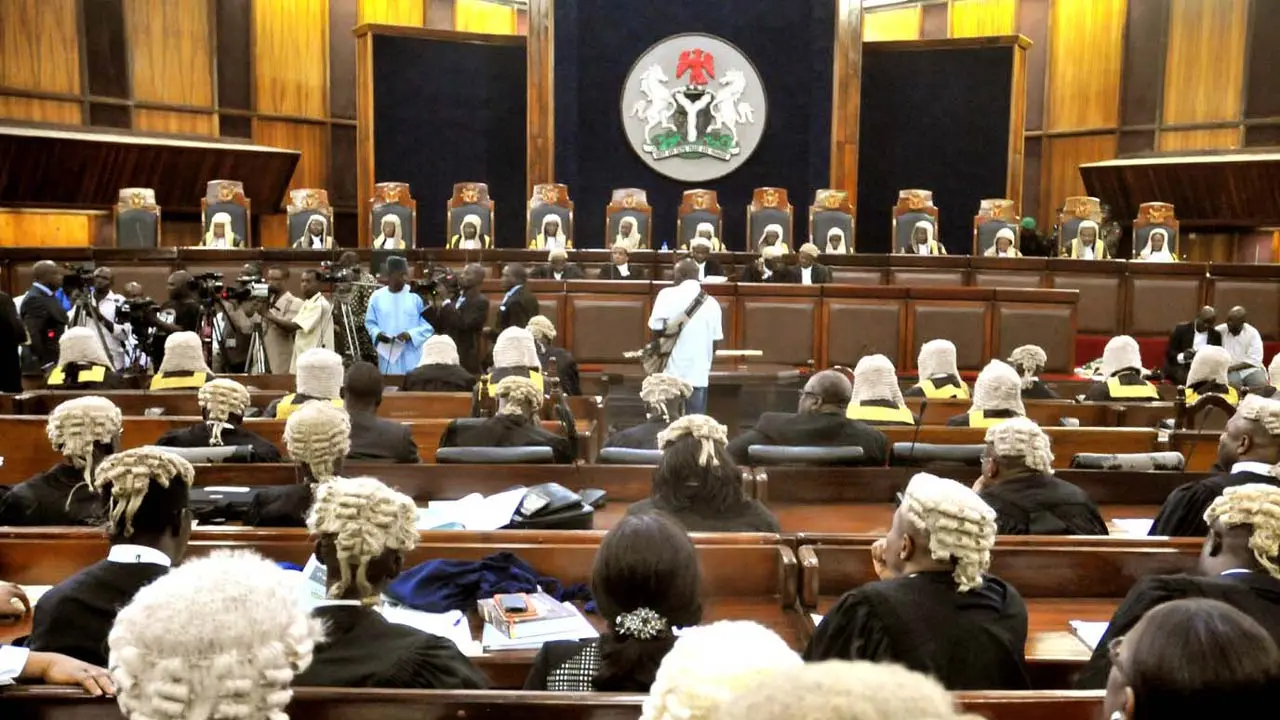The reported contention between the Economic and Financial Crimes Commission (EFCC), and citizen Ikechi Emenike, over the possession of a forfeited property in Abuja is very embarrassing and ridicules the revered anti-graft agency.
EFCC ought to be a respected agency that lives above board in matters of corruption. It will be self-indicting for the EFCC that should represent sanity, equity and justice, to be entangled in avoidable contention over a forfeited property it should, ordinarily, dispose of according to the law following the rules.
The case is made worse when a court of competent jurisdiction has adjudicated over the case and issued an order which the EFCC has bluntly refused to obey. The development gives credence to the unenviable stigma that Nigeria is a lawless country where the rule of law is thrown to the winds.
The EFCC should save Nigeria the opprobrium of being tagged a lawless commission, which tarnishes the image of Nigeria. According to reports, the EFCC secured a certain house located at No. 6 Aso Drive, Maitama, Abuja to the Federal Government in 2016, while citizen Emenike resided in the house.
Subsequently, the EFCC appointed an agent to manage the property on its behalf to which citizen Emenike was praying rent. In other words, the EFCC assumed to be the landlord of the house. What is the legal basis for this arrangement? Does the EFCC have the legal right to collect rent on an interim for- feinted house? To whom does the collected rent belong?
While this was going on, the EFCC advertised the house for sell. Citizen Emenike reportedly consulted with the EFCC to grant him the Right of First Refusal (RFR). While Emenike was waiting for the RFR, the EFCC unilaterally decided to appropriate the property to their chairman. Citizen Emenike objected to this action and went to court to challenge it. After several months of legal tussle, an Abuja FCT High Court presided over by Hon. Justices Musa, granted citizen Emenike the Right of First Refusal and warned the EFCC that they have no legal right to appropriate any forfeited property to themselves for whatever reason.
Justice Musa further said the only option left to the EFCC by law, was to sell the house and remit the proceeds to the federal government. And in that case, citizen Emenike should be given the Right of First Refusal. Whereas, the EFCC has not appealed the judgment, it has refused to give citizen Emenike the Right of First Refusal in the sale of the house.
Instead, the EFCC filed and obtained an eviction order from on Abuja High Court with which they stormed the house, chased away the domestic staff of citizen Emenike and took possession by force.
Irked by the illegality, citizen Emenike approached the same court that gave the eviction order. The judge reversed the order and reportedly lambasted the EFCC for fraudulently securing the order and thereby ordered them to vacate the house and restore citizen Emenike to the house. The court sent its bailiffs to go and enforce the order but rather than obey and vacate the house, the EFCC reportedly told the bailiffs bluntly that they will not obey any court order.
The court tried again with the support of the police from the FCT command but again met stern resistance from the EFCC operatives. Following this, the EFCC filed a motion for a stay of execution in the same court. But the court rejected and dismissed the EFCC motion. The judge told EFCC to go and purge themselves of their disobedience of the court order, saying that the EFCC behavior is unconscionable.
It is pertinent to ask why the EFCC is fixated on the property and thereby trampling on the rights of citizen Emenike, the bonafide owner of the house. Does the law permit the EFCC to take over any forfeited property with impunity and without due process? Over the years, it has been mooted in some quarters that the EFCC, the anti-graft czar is corrupt. While this speculation or imagination has not gained traction, a matter such as this would definitely give credence to corruption allegation in the EFCC and paints a bad image of commission.
How can the EFCC, the supposedly anti-graft agency that enforces anti-corruption laws be so lawless? This incident has exposed the illegal dealings the EFCC might have been perpetrating over the years with regards to forfeited properties. An interim forfeited property like the above is not totally lost.
The owner can still reclaim it after all the legal processes. It is absolutely wrong for the EFCC to lay hold or desire to possess it by force. In this case, the EFCC attracts more condemnation after a court of justice issued an order for it to hands-off and do the needful to which it bluntly refused to obey.
If a critical government agency such as the EFCC could disobey court order in a democracy, as it were, what hope is there for the country to make progress? Could it be that the EFCC operatives are working for their personal interest, which is why they were so fixated on the choice property? The EFCC was created to investigate and prosecute financial crimes like fraud, money laundering and economic crimes. As such, the EFCC’s actions should, at all times, be guided by the law.
It will be anathema for a law enforcement agency of the government to be at the forefront of disobeying the law. As things stand in the case, the EFCC should be called to order by the minister in charge of the commission to avoid bringing bad name to government.
Dr Onyekakeyah is a former member of The Guardian editorial board and a public affairs commentator.






